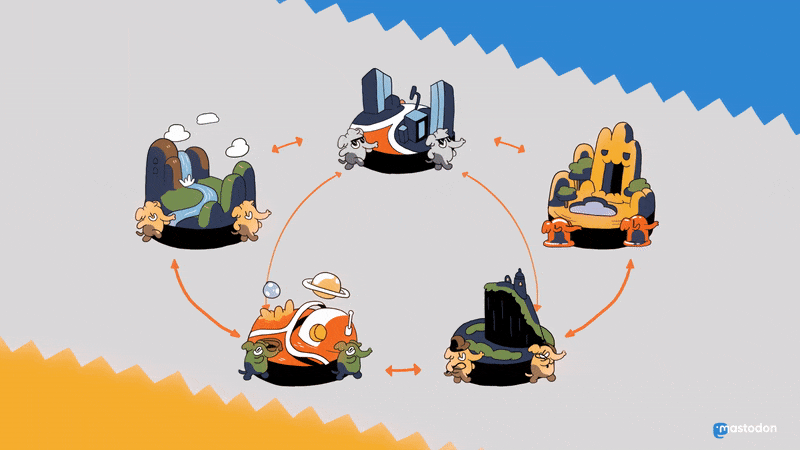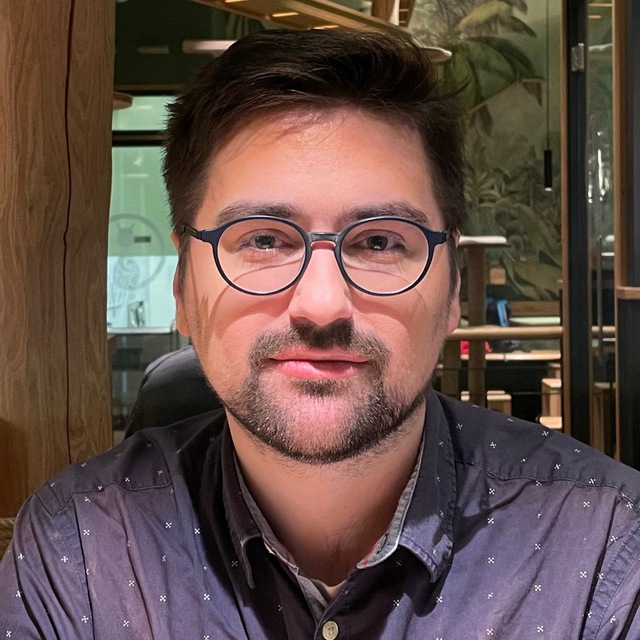
Why ActivityPub is the future
We often tout things like “Mastodon is based on open web protocols” as one of its advantages. I want to elaborate why exactly that’s a good thing.

Eugen Rochko
Strategy & Product Advisor, Founder

Why we must oppose the new copyright directive
A committee of members of the European Parliament have voted to approve Article 11 and Article 13, which pose a risk to the decentralization of the web and freedom of creative expression.

Eugen Rochko
Strategy & Product Advisor, Founder

#DeleteFacebook
Deep down you always knew it. On the edge of your perception, you always heard the people who talked about the erosion of privacy, that there was no such thing as free cheese, that if you don’t pay — then you’re the product. Now you know that it’s true. Cambridge Analytica has sucked the data so kindly and diligently collected by Facebook and used that data to influence the US elections (and who knows what else).

Eugen Rochko
Strategy & Product Advisor, Founder

Replacing the Pillars of the Internet
This article assumes you’ve read my previous two blog posts, here and here. Why not give them a quick read if you haven’t already? To balance out the doom and gloom of an internet wholly under the thrall of corporate interests and fed through single channels devoid of competition, it’s worth being aware of just how pervasive and powerful an idea decentralization is in the 21st century. The structure of things now are remnants of the way things have always been done: we trust in a singular authority to manage everything behind the scenes so that our experience on this side remains seamless. ISPs, once a central requirement, are increasingly becoming outmoded, antiquated, and unnecessary. Do we need a middleman managing what is, for all intents and purposes, access to a utility?
Tremaine Friske
Guest

Twitter is not a public utility
Isn’t it a bit strange that the entire world has to wait on the CEO of Twitter to come around on what constitutes healthy discourse? I am not talking about it being too little, too late. Rather, my issue is with “instant, public, global messaging and conversation” being entirely dependent on one single privately held company’s whims. Perhaps they want to go in the right direction right now for once, but who’s to say how their opinion changes in the future? Who is Twitter really accountable to except their board of directors?

Eugen Rochko
Strategy & Product Advisor, Founder

The Centralization of Power on the Internet
The online space is dominated by a small handful of companies that command a disproportionate amount of power and influence over the entire online experience, not just social media. So much influence that several of these companies have fundamentally altered many aspects of life offline; often described with the floral language of the privileged as ‘disruptive,’ but more clearly understood in the common tongue as ‘destructive.’’ The five most valuable companies at the end of 2017 were, in order: Apple, Alphabet (the company that owns Google), Microsoft, Amazon, and Facebook. each business not only depends on, but commands large parts of the technological landscape. What do all these companies have in common?
Tremaine Friske
Guest

This Isn’t About Social Media. This is About Control.
Human beings, above all else, are storytellers. It’s how we relate to our own past, or personalities, or each other. It’s how to connect with the world around us, make sense of events, and assess values. We rely on stories to function as agents in the world. These stories are often told in-person: “oh, I did this today, I felt like this, then this happened and I was like ‘whoa no way!’” In times past, we relied on an oral tradition to pass on values, moving towards the written form as literacy grew and cities became the primary way people lived.
Tremaine Friske
Guest
April post-mortem
This is an update for my Patreon supporters. It is posted on Medium because of its superiour formatting capabilities. So, April, huh. A lot happened. I was putting off writing an update on here because I knew I had to go into detail on all the things that happened, and that’s quite a daunting task. Before I dive into things, a couple short notices: The way I work with the GitHub repository has changed. I no longer work directly on the master branch. I (and other volunteers) work on feature branches. Something can only be merged into the master branch through a pull request that receives a review and approval from at least one trusted contributor. This means that the master branch is a lot more stable, and there is a lot more accountability for who does what and when. However, the master branch is still not a stable enough medium for the (literally) thousands of Mastodon instances running in production. Therefore, we now do actual releases — v1.1, v1.2, v1.2.2 etc. The releases now contain detailed changelogs, linking back to the pull requests in which the changes were made, with a list of all contributors for the release at the bottom. This replaces the changelogs I was publishing on this blog.

Eugen Rochko
Strategy & Product Advisor, Founder
Two reasons why organizations should switch to self-hosting social media
My name is Eugen Rochko and I’m the creator of Mastodon, a free, open-source federated social network server. The flagship instance mastodon.social has over 23,000 users and is growing fast. You can check it out here. If your organization is hosting a Mastodon instance, it is essentially a self-perpetuating brand awareness campaign. When people from other instances talk to or follow your users, they see your domain name all the time, since it is part of their globally unique usernames. It’s like those sticker ads on cars, except you don’t have to pay for them and it doesn’t disturb anyone because you’re providing a service.

Eugen Rochko
Strategy & Product Advisor, Founder